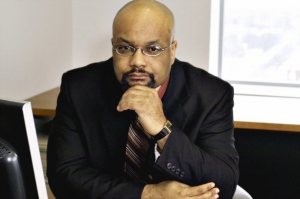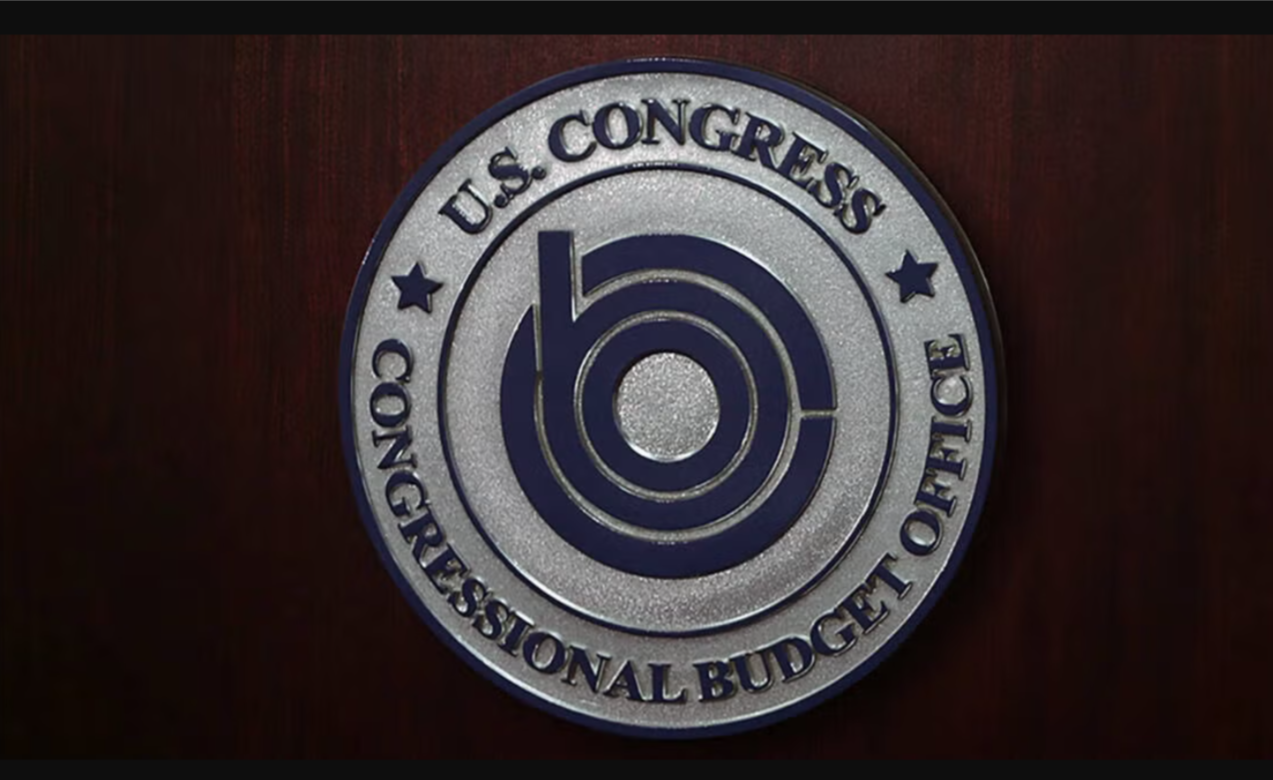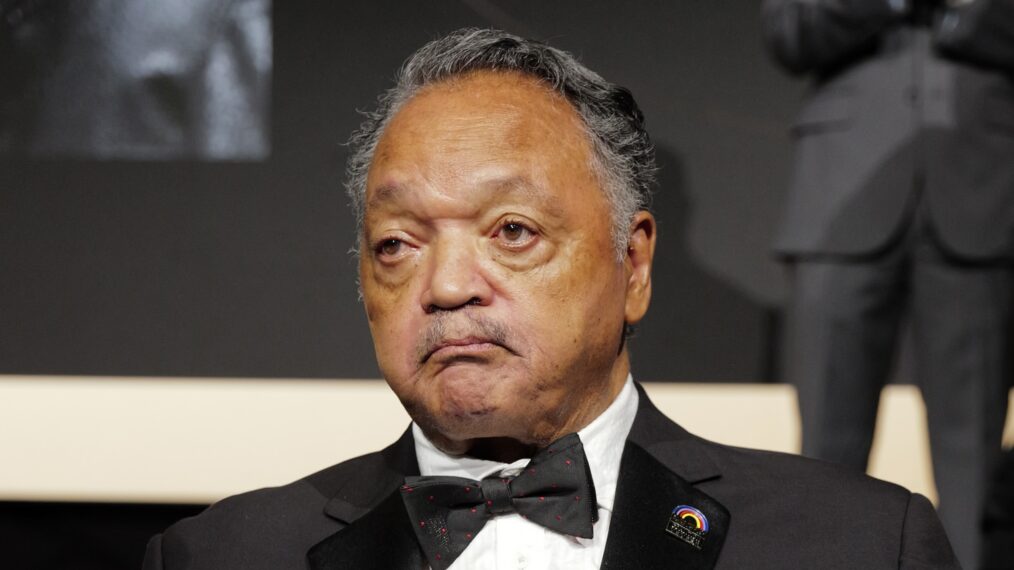(ThyBlackMan.com) When I first thought about getting a PhD in Business, I found out about the PhD Project. This ground-breaking initiative had the simple goal of creating more black professors to sit in the front of the classroom. It was established by the KPMG Foundation, and from what I understand, might have been in response to a series of complaints about racism that the organization had received in the past.
Since that time, the group has produced scores of black scholars in the field of business, an area that is in dire need of meaningful diversity. I was the only African American in the world to earn a PhD in Finance during the year 2002, and my university had never hired a black Finance Professor in its entire 130-year history. Business tends to be a very conservative field, where black people are still locked out at every turn (the Business School here at Syracuse, along with many others around the nation, has several departments that have never given tenure to an African American, which is downright racist and shameful).
I spoke recently to a friend about the PhD Project, which led to a tense discussion about how we train our black scholars. The models tend to be simple, primitive and somewhat counter-productive: Get your PhD, find a job at the best (typically predominantly white) university you possibly  can, and spend the rest of your life doing research to publish in allegedly “prestigious” academic journals that almost no one ever reads. No one tells us who decided that one journal is more prestigious than the other; we are just expected to do what we are told.
can, and spend the rest of your life doing research to publish in allegedly “prestigious” academic journals that almost no one ever reads. No one tells us who decided that one journal is more prestigious than the other; we are just expected to do what we are told.
As you spend your career writing one research paper after another, you also teach classes, with many of them having only one or two black students. White folks have all the money, so the dominant paradigm in this model of academic imperialism is to disappear from the black community and use your PhD as your ticket to “Never Land.” I know Never Land very well: As a “young negro prodigy,” (folks get excited when they see a black male with straight As) I was accepted into the best programs, studied under leading scholars and have more than my share of academic publications. I was brainwashed…I mean trained very well, and I know this system better than a man knows his ex-wife.
As a result of this antiquated approach to professional development, thousands of promising careers are ruined before they even begin. Our brightest minds are extracted from black America like barrels of oil from the soil of Nigeria. Even sadder is that the system to which so many black scholars dedicate their lives often leaves them used up, frustrated and feeling professionally worthless. Most predominantly white universities are willing to consider hiring black scholars for a few years, but almost never give them tenure, like the professional athlete who gladly sleeps with black women, but then runs off to marry the white girl.
I argue that it’s time for black scholars to re-consider the manner and creativity by which they pursue their career objectives. The academic plantation offers some black scholars a false validity; part of the “mama I made it” syndrome that adds almost nothing to the communities from which they came. Many of them are convinced that they are being groomed to be a lasting part of the infrastructure of their campuses, only to find that they were part of a superficial diversity quota. For the small number of black scholars who make it through this skewed and biased system, the rewards are a fancy office, a little bit of money, a contrived sense of prestige and the validation that we are constantly seeking from those who have been historically-positioned to control our thinking. But when real impact on the black community is measured, an endless trail of intellectual aerobics is necessary to figure out where we’ve actually made a difference.
For the majority of black scholars who are spit out by the system, there is almost no reward. After the academic honeymoon is over, scores of black scholars are kicked to the curb, like the prostitute with messy hair, smudged makeup and a rip in her stockings the morning after a late-night date. They buy into the scheme lock, stock and barrel, only to find that the platform was designed to empower the blonde-haired, blue-eyed man down the hall. Some expect to change the way things are done on their campuses, but you can’t move into someone else’s house and expect them to let you shift around the furniture. The best you can do as a black scholar is to do a very good job of imitating the white ones – but when you are trying to be someone else, you will never be perceived as anything better than a faulty version of the original.
I argue that it’s time to break the chains and get black scholars off the academic plantation. It is perfectly fine for scholars to teach at white universities and do research in journals controlled by white males. But it is also OK for us to re-engage our communities, earn multiple sources of income and find other relevant platforms through which we can share our expertise with our communities. Our value is undeniable, even if academia rejects us, and we cannot allow self-righteous judgments by culturally-incompetent colleagues to undermine our self-esteem.
The PhD Project, and other well-intended (albeit somewhat paternalistic) organizations would be wise to open the door for other ways of thinking among young African American scholars. In my own career, I was well-prepared for the possibility that my work in the black community would be undervalued by my peers. The Whitman School of management at Syracuse University had not granted tenure to any African American in over 100 years, so I knew that an outspoken black man would likely not be their most-favored son. Letters and calls of support from Jesse Jackson, Al Sharpton, Michael Eric Dyson and Julianne Malveaux would make little difference in a place that has been conditioned to view black scholarship through a lens that is dusty with the sick poison of curdled American racism.
So, to prepare for all possibilities and to ensure that my 10 years of hard work didn’t go to waste (getting a PhD in Finance was the most difficult thing I’d ever done), I learned how to start my own business. I knew that if I had multiple sources of income, I would not be fighting with my colleagues over a $3,000 raise, or end up thinking that getting a lifetime job via tenure was my only path to financial security. One hilarious fact about many American business schools is that most of the faculty have never run a business or worked for one, so I also saw this as a test of whether or not I actually understand my field and have the intelligence to succeed outside the comfort of the Ivory Tower.
After starting my own business, I worked to expand the size of my classroom. The Internet and traditional media served as wonderful ways that I could re-engage my community by speaking and teaching on the issues of the day with those who respect my points of view as a black man. I also found that the appreciation I received from my community for my hard work (yes, I am a workaholic) more than compensated for the fact that my own campus always treated me like an academic leper. The teaching, research and service awards that many black scholars are conditioned to chase are not meant for us; a few of us get them, but most of us are left unrecognized for our accomplishments.
As a result of pushing outside of my comfort zone, the Your Black World Coalition has grown to over 72,000 members nation-wide. Also, over 1,000 appearances in national media during the last five years has given me an opportunity to find “students” around the world, creating a peaceful psychological escape from the petty and small-minded things happening in the faculty meeting down the hall. I’ve had educators telling me that I am a “bad boy” since I was five years old. Once I decided to stop being afraid to let the world know who I really am, I was able to find out what true academic freedom really means. I am no longer a Finance Professor who just happens to be black….I am a black man who just happens to be a Finance Professor.
Even Jesus reminded us that sometimes the church can stand in the way of truly connecting to God. Similarly, academia can sometimes get in the way of one’s ability to pursue meaningful scholarship. By using the resources around us, thinking outside the box and letting go of our need for external validation from the descendants of our historical oppressors, black scholars can elevate our impact to levels that were previously unimaginable.
We must teach young black intellectuals what it really means to be a scholar without filling their heads with pompous, culturally irrelevant, counterproductive protocols that were designed without our people in mind. I am hopeful that the PhD Project and any other group in a position to mentor African Americans realizes that these young minds are not meant to be shepherded into a system that is designed to destroy them….they should be liberated so they might fulfill their greatest potential.As my friend George Fraser once said, “The black community doesn’t need more PhDs…..it actually needs more Ph-Dos.” We must first elevate if we are going to properly educate. If black scholars don’t learn to define our own paths and gain the courage to pursue them, our wall full of credentials become as meaningless as the paint on the wall itself.
















Love it! Thanks! Will do!
I am glad that Dr. Watkins took the time to write this very important article. I do commend him on receiving a PhD in Finance and for admitting it was one of the hardest things he has done. Having taking finance courses last year to complete my MBA, I have a new respect for finance majors.
I am a person who returned to school over twenty years after receiving my BS in Business Administration and declaring I would never go back. After a couple of years climbing the corporate ladder, I started my own business and have been successful in many aspects of mentoring and providing opportunities for both youth and adults to grow in their dreams and aspirations.
I became interested in teaching adults about five years ago when I witnessed my mom graduate with her second Masters degree in Education at 76 years old and continue to teach until last year at 81 years old.
Currently, I mentor aspiring businesses in a non-profit program and look forward to expanding to a college or university environment. Dr. Watkins has inspired me to look further into a PhD program with his comments. I also wrote an article featured in Sista Talk entitled “A Changed Future for the Adult Learner and Teacher, which was a spin off from my experience as and adult learner in the MBA program. https://thyblackman.com/2011/08/25/sheila-agnew-a-changed-future-for-the-adult-learner-and-teacher%E2%80%8F/
For certain it is important to not forget community. I enjoyed this piece because of many reasons you listed, in pursuit of my EdD, I was expecting to be respected on the “plantations” of Eurocentric thought by hoping to be hired, ‘tenurized’, and respected for my accomplishments. Through your article I have reconsidered my objective to ‘impress’ the establishment by showing them that I could be a successful ‘knee-grow’ if given the chance. And who are they that I should want to impress them anyway?
In the text: “The Mis-Education of the Negro” Woodson (1933), your article helps me recall this quote: “The same educational process which inspires and stimulates the oppressor with the thought that he is everything and has accomplished everything worth while, depresses and crushes at the same time the spark of genius in the Negro by making him feel that his race does not amount to much and never will measure up to the standards of other peoples. The Negro thus educated is a hopeless liability of the race” (p.xiii).
Wow!…This is a side of the Doctor I have never noticed before. I take back all the negative things I have ever thought about the doctor.
I remember when I earned my MBA in 1991 at the age of 26, the buzz was that the University was looking for minorities to enter their business PHD program free of charge. I’ve always been interested in starting my own business so I declined the invitation. However, one of my friends took them up on their offer and today she is a Professor at this University teaching future business leaders of America.
Four years after declining the invitation to enter the business PHD program free of charge, I started a Tax Practice, then added a Real Estate Brokerage and recently a Registered Investment Advisory Firm.
For more than ten years, I have had an internship program employing high school seniors where they gain hands on experience in business while earning a salary and credit towards their high school diploma.
Many of these students have gone on to graduate from Ivy League schools such as MIT, Tuffs University, Yale, etc. However, many have bypassed college altogether to successfully start and run their own businesses.
The bottom line is that it has to be what you want not what someone else wants for you!
What you are essentially saying is something Blacks in America and people in general need to do. Believe in your own manhood and womanhood. We were created by a Holy God and have a right to be here, a right to occupy the space we are in. How there we let anything or anybody limit our potential to grow. We have to be practical, but practicality doesnot mean we cannot breakout and become our own person. Atheletes have it a little easier then us academics, because if you can out jump, out shoot, or out run the next guy,or gal, then you usually get the spot. But how do you grade a good idea which has never been tried, or put a price on a great theory. However, God knew this when he gave us this brain we have. He intended for us to use it and I love using mine. Grow Blackmen grow! Grow Blackwomen grow! http://www.sslumpsum.com
Truer words have never been said.